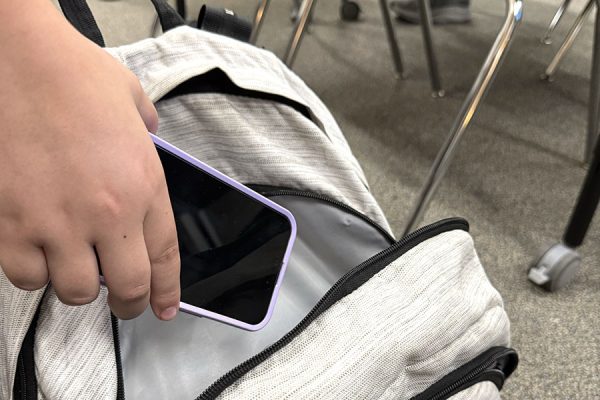The Fuss About Puss
Skin Care Myths, Truths
Photo Courtesy of Audrey Fretz on Unsplash
Clear, healthy, blemish-free skin is promoted all the time in the media. But instructions on how to achieve this standard are all too often left out. Understanding how the skin works is important to understanding how best to maintain it.
November 17, 2021
Day after day, we are bombarded with information about how to clean, scrub, moisturize and torment our skin. The global phenomena of how best to take care of your skin has taken the whole world by storm. I know from experience how tough it can be to get rid of acne. But, with so much information from numerous sources, it seems nearly impossible to sort the truth from myths.
Before any myths can be tackled, it is important to first understand what our facial skin is in the first place. Skin is made up of three components, the top layer, or epidermis, that traps moisture, the mid layer, or dermis, which makes up the main structural cells and contains oils and then the bottom layer, or hypodermis, where new cells are formed.
Pimples are caused by an excess of oil buildup in the pores; the build-up of this excess oil, called sebum, is what blocks the pores and causes pimples on your face. Sebum production varies from person to person, but hormone production and age are major factors. Contrary to popular belief, fatty or greasy foods such as fried chicken, chocolate milk or french fries do not cause acne, according to VeryWell, a health website. However, according to another health website, Healthline, disposable masks, bike helmets and touching your face can clog your pores with bacteria and cause an increase in acne.
The best way to reduce acne is by using a facial cleanser which clears the skin of bacteria, excess sebum and dead skin cells preventing your pores from becoming clogged. I personally use the Cetaphil gentle skin cleanser in the mornings and at night to clear my pores, followed by the oil absorbing Cetaphil moisturizer to protect and moisturize my skin. The cleanser especially is really good and it doesn’t leave my face feeling too minty. I’ve been using both products for years now and I love how gentle they are especially since my skin is sensitive. I used to incorporate face masks in my nightly routine but they didn’t show many results, so I stopped, but that doesn’t mean all of them won’t work for you.
Wrinkles are another skin affliction that all people will struggle with at some point in their lives. While wrinkles may not yet affect youthful individuals such as myself, there are ways to reduce the number of wrinkles in the future and prevent new ones from forming. A common myth is that once wrinkles begin to form, they are impossible to get rid of, which is simply not true. As aging occurs, the hypodermis skin layer produces less and less new cells to replace the dead ones on the upper layers, according to Cleveland Clinic. The skin’s structural material, collagen, is produced less and less in cells over time coupled with ultraviolet radiation that breaks down collagen even further. A chemical called retinol helps the skin retain and produce collagen, which prevents wrinkles from forming, but results will only begin to become apparent after six to 12 months of use according to a Harvard Health article from 2019.
You may have also heard that if it’s cloudy outside or if you’re indoors you don’t need to wear sunscreen, which is also not true. According to Allure magazine, sunscreen should be worn to protect your skin from UV radiation which can both cause wrinkles and is a major source for skin cancer. They also state that the SPF rating for the sunscreen should be at least 30 SPF in order to provide maximum protection. The Eva Naturals and Alana Mitchell retinoids are both really good options for improving my skin. I use both everyday, one in the morning to improve my complexion and the other at night to prevent wrinkles.
Additional rumors include the belief that drinking more water will help improve the skin. While water is important to the overall health of the body, there is not any conclusive evidence that shows a direct benefit of drinking water and skin care. A good rule of thumb when determining whether or not something will have a positive impact on your skin is to think about how the product and application method will affect the three layers of skin It is very easy to spread misinformation, especially when it surrounds health, so staying away from fads and using the tips above will help sort fact from fiction.
It is key to remember that everyone’s skin is different. I had to learn to not follow trends because an “influencer” claimed it works or become discouraged because a trend didn’t work for me. One time I gave myself a chemical burn for a week because I followed what somebody told me to do rather than what I knew was best for my skin. Learning about all skin types, especially your own, is necessary when determining whether or not the method will work.



![Jumping off the ground, senior linebacker Bennett Patton snatches the ball out of the air for an interception at Thursday’s game against Chaparral. Patton had two interceptions in the 56-14 victory, tying the school record for interceptions in a game. “I was just playing the game,” Patton said. “[I’m] going to go into next week, forget about it and stay humble.” Photo by Harper Chapman](https://cphswolfpack.com/wp-content/uploads/2025/09/bennett-interception.jpg)
![The fire department came to the school after students were evacuated when smoke started coming from the ceiling of a classroom. All students and staff are safe. “All of my friends left their stuff too, so we couldn’t contact our parents, and it was stressful,” senior Brynn Fowler said. “It was scary because I didn’t know [what was going on], and I couldn’t find anyone because it was a big crowd.” Photo by Anthony Garcia](https://cphswolfpack.com/wp-content/uploads/2025/09/firetruck.jpg)


![Sitting with her friend senior Sohpia Struve at last year’s Austin City Limits Festival, senior Ava Zuniga poses for a picture under a pavilion. They are frequent attendees at ACL, an annual music festival at Zilker Park. “I would recommend seeing a bunch of people,” Zuniga said. “This past year, we camped out for Chappell [Roan] for a really long time. I think the whole point of ACL, [which] is a lot of fun, is that you can go see so many different people, even if you don’t know them. So by camping by one person, it really limits yourself from being able to go see a bunch of people.” Photo courtesy of Ava Zuniga](https://cphswolfpack.com/wp-content/uploads/2025/10/EE9E9484-FE6F-4AA0-B5F5-0C177AB32841-1200x857.jpeg)
![Broadcast, yearbook and newspaper combined for 66 Interscholastic League Press Conference awards this year. Yearbook won 43, newspaper won 14 and broadcast took home nine. “I think [the ILPC awards] are a great way to give the kids some acknowledgement for all of their hard work,” newspaper and yearbook adviser Paige Hert said. “They typically spend the year covering everyone else’s big moments, so it’s really cool for them to be celebrated so many times and in so many different ways.”](https://cphswolfpack.com/wp-content/uploads/2025/05/edited-ILPC.jpg)




![Looking down at his racket, junior Hasun Nguyen hits the green tennis ball. Hasun has played tennis since he was 9 years old, and he is on the varsity team. "I feel like it’s not really appreciated in America as much, but [tennis] is a really competitive and mentally challenging sport,” Nguyen said. “I’m really level-headed and can keep my cool during a match, and that helps me play a bit better under pressure.” Photo by Kyra Cox](https://cphswolfpack.com/wp-content/uploads/2025/09/hasun.jpg)


![Bringing her arm over her head and taking a quick breath, junior Lauren Lucas swims the final laps of the 500 freestyle at the regionals swimming competition on date. Lucas broke the school’s 18-year-old record for the 500 freestyle at regionals and again at state with a time of 4:58.63. “I’d had my eye on that 500 record since my freshman year, so I was really excited to see if I could get it at regionals or districts,” Lucas said. “ State is always a really fun experience and medaling for the first time was really great. It was a very very tight race, [so] I was a bit surprised [that I medaled]. [There were] a lot of fast girls at the meet in general, [and] it was like a dogfight back and forth, back and forth.” Photo by Kaydence Wilkinson](https://cphswolfpack.com/wp-content/uploads/2025/03/Kaydence-2.7-23-edit-2.jpg)
![As the support team sits and poses for a photo in the cafeteria with the counseling team they eagerly wait to start their day. "We [all] seem to be a team, I get up every day and there's days where I don't want to go to work today, but I'm thankful that I have a job and I'm blessed to have what I have," Christopherson said. Photo Courtesy of Julie Weltens.](https://cphswolfpack.com/wp-content/uploads/2025/01/AF9E8470-10D7-4C91-BF28-EC8F86BAB66C-1200x852.jpeg)
![Officer Stephanie Cash is in her second year as an SRO at CPHS. “Seeing [students] grow over the years has been kind of cool,” Officer Cash said. “Freshmen that [are] all over the place and then in the next couple of years get a little more squared away and go to class and do work and start thinking about the future. Being a part of a student's growth is the best way to measure my success as an SRO.” Photo Courtesy of Cedar Park Police Department's PIO, Alicia Gallagher.](https://cphswolfpack.com/wp-content/uploads/2024/12/CPHS-SRO-900x1200.jpg)
![As he sprints with the ball, senior running back Trae Hill breaks a tackle during Friday’s 35-14 loss against the Vandegrift Vipers. Hill ran for 135 yards and two touchdowns during the game. “[Scoring] was electric,” Hill said. “It always feels good to score, but the O-line did everything.”](https://cphswolfpack.com/wp-content/uploads/2025/09/IMG_0795allie.varfb_-1200x799.jpg)


























![The fire department came to the school after students were evacuated when smoke started coming from the ceiling of a classroom. All students and staff are safe. “All of my friends left their stuff too, so we couldn’t contact our parents, and it was stressful,” senior Brynn Fowler said. “It was scary because I didn’t know [what was going on], and I couldn’t find anyone because it was a big crowd.” Photo by Anthony Garcia](https://cphswolfpack.com/wp-content/uploads/2025/09/firetruck-300x200.jpg)

![Finishing her night out after attending a local concert, senior Grace Sauers smiles at the camera. She recently started a business, PrettySick, that takes photos as well as sells merch at local concert venues. Next year, she will attend Columbia Chicago College majoring in Graphic Design. “There's such a good communal scene because there [are] great venues in Austin,” Sauers said. “I'm gonna miss it in Austin, but I do know Chicago is good, it's not like I'm going to the middle of nowhere. I just have to find my footing again.” Photo Courtesy of Grace Sauers.](https://cphswolfpack.com/wp-content/uploads/2025/04/Grace-300x225.png)


